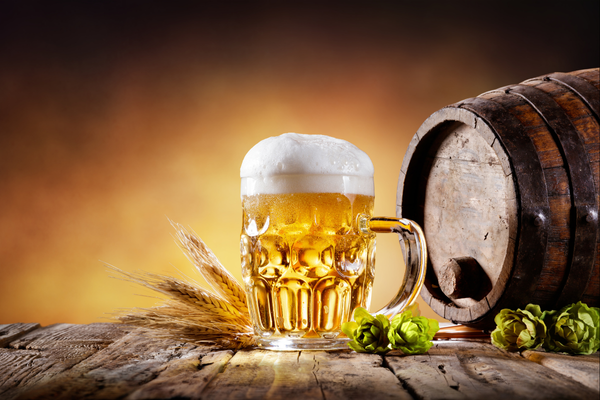Heart Failure, Basil and Spinach- by Dr Harold Gunatillake
FRCS, MBBS, AM (Sing), FIACS, FICS-Health writer to news media, newsletters, newspapers & editor of ‘Health & Views’ newsletter

The topic of the subject is confusing, but as you read, you’ll understand the significance.
What is heart failure and why should it occur?
Your heart start beating from your early foetal stage till you exhale your last breath. By the time you are 60, a healthy heart would have beaten continuously over two billion times. The efficient working and pumping blood from your heart can become weakened with age, but if you are aware of it, you can always adjust your lifestyle to prevent it. This decline in its efficiency is called “heart failure”.
The first phase of heart failure is hypertrophy of the smooth muscles of the heart. This occurs when the heart has to work more strenuously to pump blood to all organs and tissues of the body. The heart muscles have the inherent power to contract and relax, but its rhythm and rate are controlled by nerve bundles.
The muscles in the upper two chambers of the heart (atrium) have thinner walls, because they are temporary reservoirs of the blood. The two lower chambers are composed of thick layers of involuntary muscles which takes the stresses and strain throughout life.
If the strain exceeds the normal limit the muscles compensates by becoming bigger (hypertrophy) and the brunt of that strain is more on the left lower chamber (ventricle) that has to pump blood every second during lifetime.
The commonest conditions that cause left ventricular hypertrophy are high blood pressure and leaking aortic valves.
This is well shown on a plain X ray of the chest revealing a ‘boot shape’ of the heart due to hypertrophy of the left ventricle.
If the strain on the heart increases more, then it is inevitable to weaken.
So, heart failure means that the hearts ability to deliver enough oxygenated blood to each and every part of the body’s organs and tissues is lessened. If this state is unattended the next stage is fatal damage.
How do you know that your heart is failing?
The earliest sign or symptom would be breathlessness on exertion, and with further progressing, breathless at rest. The other term we use for breathlessness is ‘dyspnoea. The reason why this happens is due to congestion or ‘back up’ of blood in the pulmonary veins that returns blood from the lungs to the left chambers of the heart. Fluid from the blood leaks out and fills the lung tissue. The blood pressure in the pulmonary veins rise, and doctors refer to this as ‘pulmonary hypertension. Do not mix this situation with peripheral hypertension, which is more common.
Your doctor will put you on a diuretic for life which helps to reduce the fluid in the lungs.
Persistent coughing and wheezing will occur due to fluid build-up in the lungs. Sometimes, this state mimics an asthmatic attack, and the doctor calls it ‘cardiac asthma’. Do not confuse this situation with bronchial asthma which is more related to allergies.
If you neglect the situation further, feet start swelling, then the legs, and abdomen. You gain weight due to water-logging.
Please do not go for any other type of para-medical or native treatment for this condition. You need to go to your family doctor, who’ll do the necessary investigations and refer to a specialist. I am aware that in Sri Lanka many seek medication from the herbalists and native doctors in the rural areas and see a Western qualified doctor at the last stages, when the condition is irreversible.
When the heart starts failing, the pulse rate becomes rapid (palpitations) and you feel like throbbing in your chest.
Feel your own radial pulse in your wrist and count regularly. If it is rapid and or irregular, you may have to see your doctor.
Importance of checking your potassium in blood
There are many conditions that predispose to heart failure, which includes, heart attacks, viral cardiomyopathies, diabetes and so on. But what we are discussing in this article is a simple situation that may lead to heart failure that you should be aware of.
Potassium is a mineral required for many bodily functions, including keeping control of the electrical conduction of your heart muscles, metabolism of carbs, building muscles, and so on.
Low potassium levels cause fatigue, irritability and increased blood pressure. Overdose of potassium from natural sources is not possible. Taking too much of potassium intake from potassium salts can also lead to nausea, vomiting and even cardiac arrest. Weakness of muscles, muscle cramps, constipation and abdominal pains can be caused due to low potassium in your blood.
Remember, if you get night cramps in your calves whilst asleep, that would be a sure sign of potassium or magnesium deficiency, or may be dehydration and tiredness.
Low potassium levels can cause damage to the electrical workings of the heart and heart beats may become irregular. Too much of potassium also will damage the heart muscles.
Also, the medications given by your doctor like the diuretics and others may also deplete your potassium in your blood.
So, if you are in this predicament, you need to check your potassium level among other tests.
Your doctor will prescribe a tablet called ‘Slow-K’ to replace your potassium loss whilst on certain diuretics. Supplements may not be required if you increase the consumption of spinach, basil, bananas, potatoes, among others, daily.
Fruits, including bananas and tomatoes have high potassium, but if you are a diabetic or has fructose intolerance you may need to restrict your fruits.
Two of the best veggies you could grow in your garden or balcony will provide sufficient potassium replacement. The 7 different types of basil have nutritional potassium from 2630 mg to 78 mg. per 100grams.
Baby spinach is easy to grow on your balcony or garden. Within 6 weeks of sewing you could plenty of leaves to supply your potassium requirement. One cup of 30-gram serving of raw baby spinach has 167 milligrams of potassium
The potassium your body obtains from baby spinach is needed not only for the efficient workings of the heart muscles, but also to promote growth and development of strong bones and trigger the activity of enzymes required for carbohydrate metabolism.
Other good sources of potassium include potatoes, oranges and grapefruit juices, avocados, broccoli, coconut, dried fruits, yams raisins, beans like Lima, or white beans, bacon, nuts, soy products among others.
Beef, eggs, fish, peanut butter, poultry and pork contain moderate amount of potassium.
Low potassium fruits and veggies are blueberries, cauliflower, cucumbers, grapefruit, grapes, lettuce and strawberries.
Conclusions: Keep your heart checked to prevent failure, and also eating natural foods containing high potassium may help to keep an active healthy heart. It is beneficial to exercise daily and eating nutritious high fibre foods will keep yourself healthy and fit.
Disclaimer:
The information contained in this article is for general information purposes only, and whilst the author will endeavour to keep the information up to date and correct, eLanka makes no representations or warranties of any kind, express or implied, about the completeness, accuracy, reliability, suitability or availability with respect to the eLanka website or the information, products, services, or related graphics contained in this article for any purpose. Any reliance you place on such information is therefore strictly at your own risk. In otherwords, eLanka In no event will we be liable for any loss or damage including without limitation, indirect or consequential loss or damage, or any loss or damage whatsoever arising from loss of data or profits arising out of, or in connection with, the use of this website / article. Also please note that through this website / web page articles you are able to link to other websites which are not under the control of eLanka and therefore we have no control over the nature, content and availability of those sites. The inclusion of any links does not necessarily imply a recommendation or endorse the views expressed within them




















